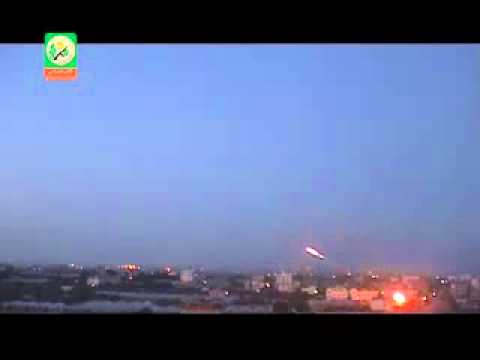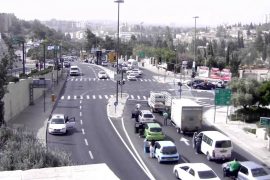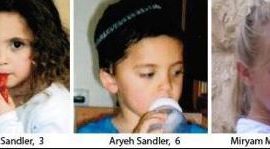As we know, this week began (and still continues) with yet more missile attacks on civilian communities in southern Israel and the subsequent closure of schools in Be’er Sheva and – as we noted at the time – the BBC’s reporting on the subject was – to put it generously – decidedly sluggish.
In fact, the first mention of the renewed attacks came well over 24 hours after they began, on Monday October 29th, in the form of two reports on the Middle East page of the BBC News website.
One report, titled “Violence ends Israel-Gaza truce“, includes the rather tortured explanation:
“It [rocket fire] came hours after Israeli aircraft hit targets in Gaza, after militants fired rockets following the killing by Israel of a Gazan who Israel said fired mortars at its troops.”
The article also sports ‘analysis’ from the BBC’s Gaza correspondent Jon Donnison:
“It is often difficult to pinpoint when a specific escalation in violence started – both sides will always remember what they see as a previous act of aggression by the other which enables them to justify their attacks as retaliation”
The second article, by Jon Donnison, is entitled “Israel-Gaza violence puts pressure on sides to respond” and it opens with the same paragraph. Donnison goes on to attribute the truce-breaking rocket fire to “small extremist Salafi groups in Gaza, that were not party to the unofficial truce”, but fails to mention that the Hamas-backed Popular Resistance Committees claimed responsibility for one of the Grad missiles fired at Be’er Sheva.
Donnison goes on to state that:
“Such groups [Salafists] say Hamas is too moderate in its resistance of Israel’s occupation. Hamas, which governs in Gaza, has sometimes tried to stop Salafis from firing but has not always been able to do so.”
He continues by promoting his usual stance (once more neglecting to inform us by whom it is “widely believed”), according to which:
“It is widely believed Hamas does not want a major escalation in violence with Israel or another war in Gaza. The movement is more interested in consolidating its power and strengthening the economy.”
However, Donnison then adds:
“But when its own members are killed or Palestinian civilians are caught up in the violence, Hamas is under pressure to respond in order to assert its credentials as a resistance movement.
As the governing power in Gaza, it needs to be seen to protect the population.”
So, to recap Donnison’s message, Hamas has no choice but to join in the rocket fire – even though it does not really want to – due to internal pressures.
Donnison, of course, refrains from venturing down the complicated route of defining the kind of organization which deliberately and calculatingly fires rockets at one million men, women and children in a neighbouring country in order (according to him) to boost its own domestic political credentials. He is therefore also unable to approach the question of what sort of political climate in the Gaza Strip produces a governing power which needs to be seen as asserting its credentials as a terrorist organization.
In addition, he fails to address the fact that on the day before his report was published, Hamas released a video showing its own firing of rockets from built up areas of the Gaza Strip, thereby obviously neglecting Donnison’s alleged need “to be seen to protect the population” by its use of the local civilians as human shields.
[youtube=http://www.youtube.com/watch?feature=player_embedded&v=w1Um3xJWGso]
Donnison then goes on to ridiculously suggest – yet again – that Israeli responses to missile fire are somehow part of an election campaign:
“The Israeli government is also under pressure from the public to be seen to be responding to Palestinian rocket fire which impacts on the lives of hundreds of thousands of people living in southern Israel.
This is especially the case in the run-up to Israeli elections which will take place in January next year.”
Jon Donnison’s muted and misleading airbrushed reporting on Hamas and its terrorist activities may well contribute to his practical ability to report from Gaza with relatively little danger or interference.
However, the type of equivalence his ‘analysis’ promotes – between a terrorist organization repeatedly targeting civilians and a regular army engaged in counter-terrorism activities – reduces rather than contributes to his audience’s understanding of the situation and fails to meet the BBC’s Editorial Guidelines concerning accuracy.




